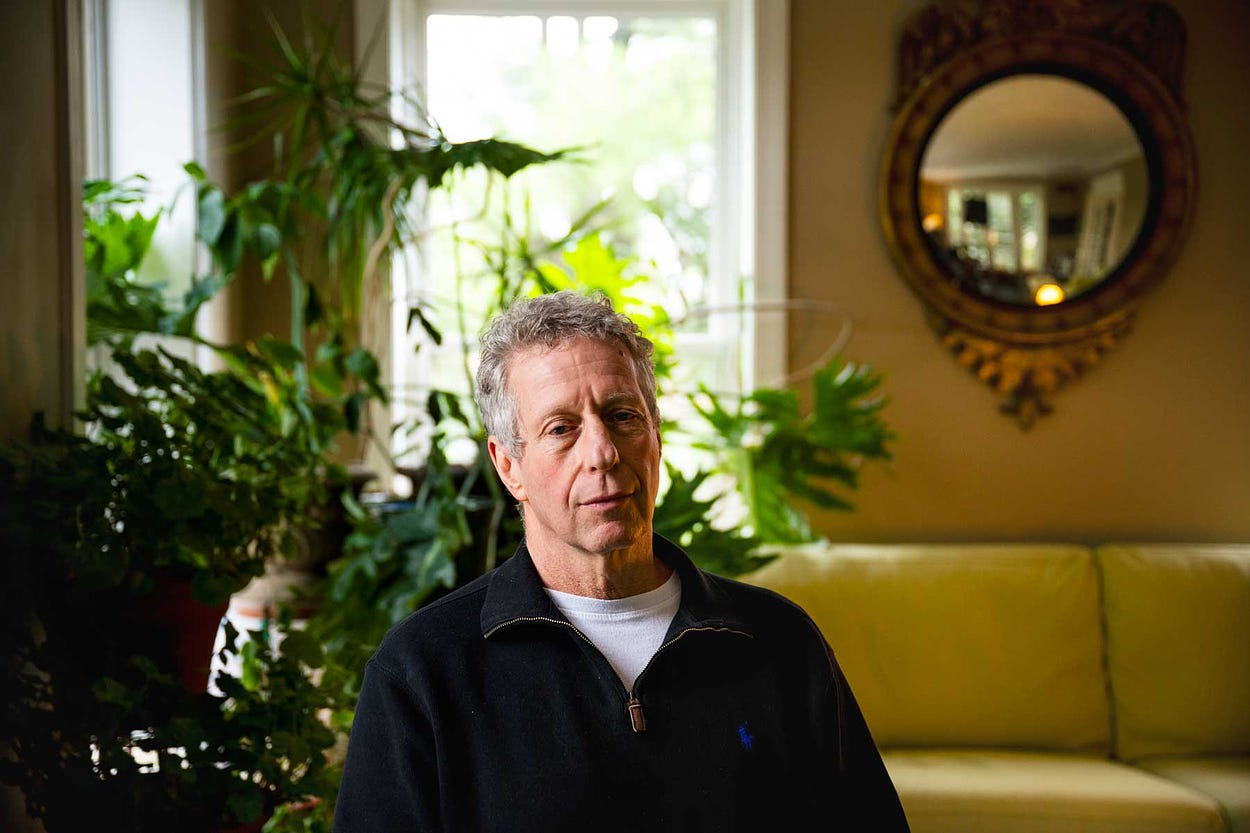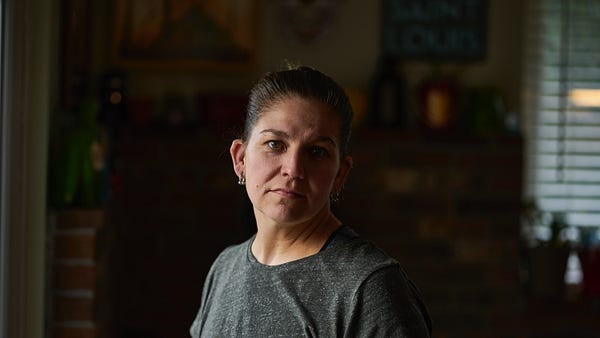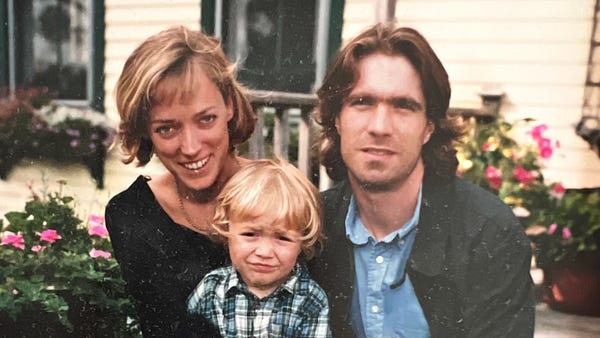
The Free Press

As Hurricane Milton barrels toward central Florida, thousands are struggling to leave before its expected landfall Wednesday afternoon. But thousands more will not, despite evacuation orders across eight counties in the Tampa Bay area. That includes Pasco County, where my in-laws live—their house is slightly out of the mandatory evacuation zone, but given its proximity to the coastline and the path of the storm, it is far from a great place to be at this time. Despite invitations for them to stay with my husband and I in Pensacola—which is in the Panhandle and safely out of the cone—they say they aren’t going anywhere.
“I’ve lived here [in Florida] my whole life,” my mother-in-law, Melissa Farley, a 57-year-old surgery center administrator from Dade City, Florida, tells me. She and my father-in-law, Chris, don’t want to leave the three-bedroom brick house they inherited from Chris’s grandmother over a decade ago. She says that she’s seen around nine or 10 hurricanes in her lifetime. “We have never evacuated. We used to protect our windows with masking tape. We have hurricane-grade windows now, a block home, and a generator if we lose power. I think I don’t evacuate because I never have. This one is definitely scary and I thought about it this time, but ultimately I feel safe at our house.”
For my father-in-law Chris, the reasons are slightly different. He’s worried about leaving his elderly dad, and also was worried about looters breaking into his house and stealing things. As a wildland firefighter, he also feels an obligation to stick around and help those who need it. “If it’s my time to go, it’s my time to go. At least I’ll be in my house where I belong.”
Melissa was right to at least think about leaving. Milton is expected to be intense, with forecasters predicting 15-foot-high storm surges and over eight inches of rain across the Tampa Bay area, where over three million people live. Jane Castor, the mayor of Tampa, actually told those in mandatory evacuation areas that, “If you choose to stay. . . you are going to die.”
It’s not just the stubborn who stay. Many people can’t leave. For a variety of logistical reasons, it’s nearly impossible to evacuate a major metropolitan area like Tampa in a matter of days. With just two highways going north out of the state, traffic jams are common—and no one wants to be caught in a hurricane in a car. Poor people, lacking vehicles or the money for hotels, often can’t manage it. (See: New Orleans and Katrina.)
Plus, hurricane paths are hard to predict and Floridians are used to being told that a storm is bearing down on them only for it to veer elsewhere. Some people are gamblers.
But in the Sunshine State, there’s also something of a culture around non-evacuation—one I’ve experienced firsthand. I didn’t evacuate when Hurricane Sally barreled toward my home in Pensacola in 2020, and nobody else I knew—not old college classmates, not co-workers, not friends—did either. As the storm raged and I waded through ankle-deep water in my apartment, assessing the damage and with nowhere else to go, I could hear a crowd of neighbors playing country music upstairs. After the winds subsided and I started to sweep the water out the front door, one of them popped down to offer my husband and me a beer. Like many others in the city, they were having a hurricane party—a phenomenon, exactly what it sounds like, that is so widespread in the Southeast, particularly in Florida, that it has its own Wikipedia page.
But now things are changing. One of my husband’s aunts, Michelle Wells, who lives in Palm Harbor—a small community north of St. Petersburg, which is projected to be dead in the eye of this week’s storm—is staying with my in-laws because their house is further inland than hers. Another aunt, Patti Beck, who has lived in Pinellas County her entire life, says that she is evacuating for the first time. She tells me locals have long believed a local myth that says a local Indian tribe cast a protective spell over the area a thousand years ago, keeping the Tampa Bay area safe from a hurricane’s direct hit. But the devastation of Hurricane Helene, which killed over 230 people late last month, scared her.
“Helene scared the hell out of me. Although we were unaffected, this storm surge is supposed to be twice as high. Denis Phillips is our local weatherman that we stalk like he is a rock star. He said go. A respected expert, recent experience, and fear of what new weather patterns are bringing prompts us to pull the trigger for the first time.”
Why do people stay? I asked Dallas Nelson, a dispatcher from Milton, Florida, a small community near Pensacola that has seen its fair share of hurricanes, including the one that flooded my apartment in 2020. Last month, Helene completely destroyed his mother’s house in Perry, Florida—a town in the Big Bend area that’s also in Milton’s path—leaving only the frame behind. Before the storm hit last week, he convinced her to evacuate, likely saving her life, but said it was “a lot of work.”
“There’s three types of people who stay: One, those who can’t leave. Two, people who have never experienced a climate change event, so they have no context for how dangerous they are. Three, people who have experienced a disaster but it wasn’t that bad. You try telling someone whose house is 30-plus years old that it won’t be there tomorrow morning and they’ll laugh at you.”
He adds, “The worst part about being lucky is never understanding how lucky you are.”
River Page is a reporter for The Free Press. Follow him on X @river_is_nice and read his piece “Hurricane Helene Has Exposed an Insane Liberal Myth.”
And to support more of our work, become a Free Press subscriber today:















Location & age of structure are the two main reasons that properties are damaged. Figure a surge potential & go with the worst case. If you’re in that zone, get out. Building codes have really gotten much stricter. If your building was built around 2000 or younger, it’s more likely to survive.
Hurricane shutters etc help as well!
Have yet to see any reports of 15 foot surges. This is not to minimize the hurricane and its damage, but please, “if you stay you will die” is a bit over the top.